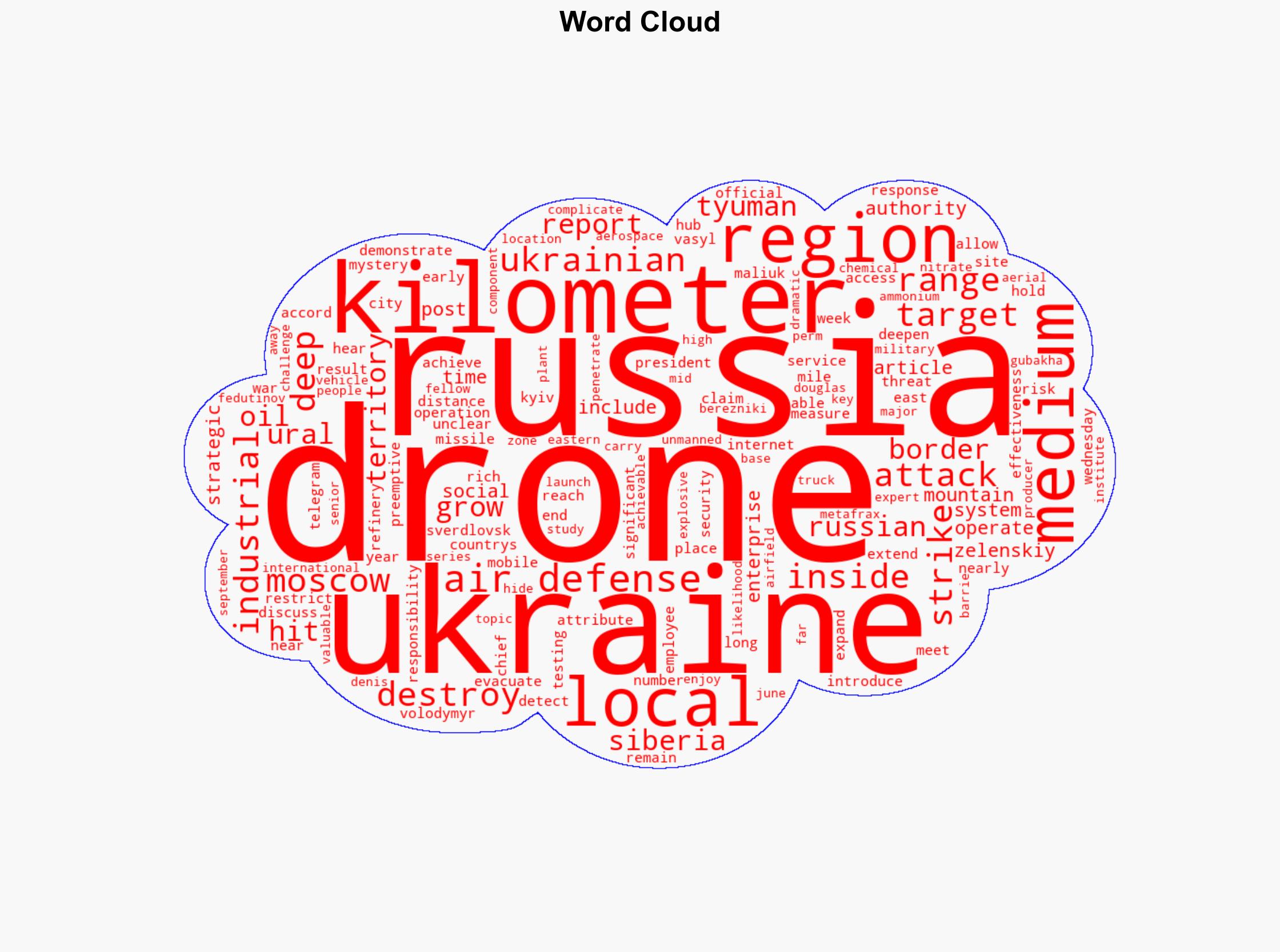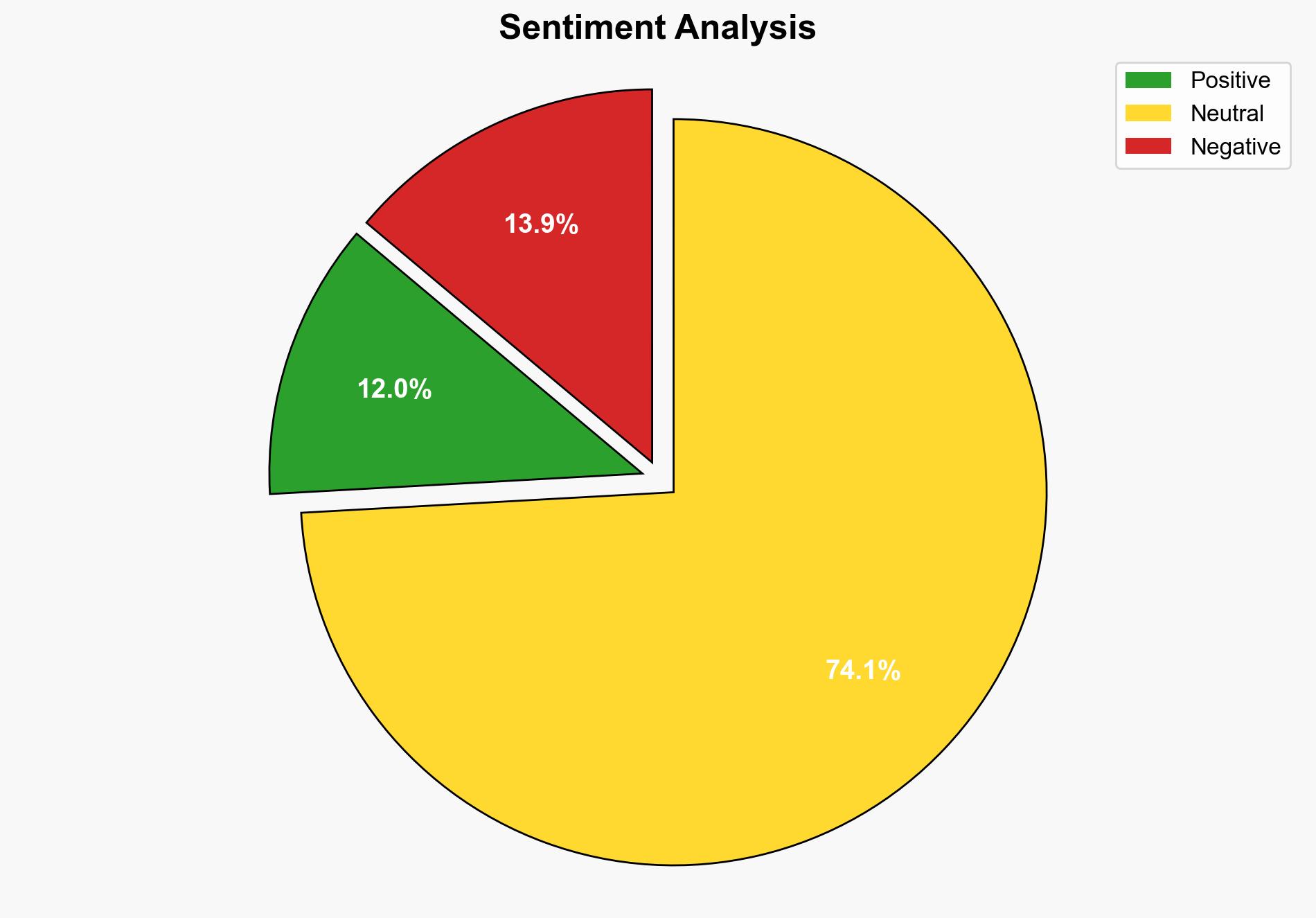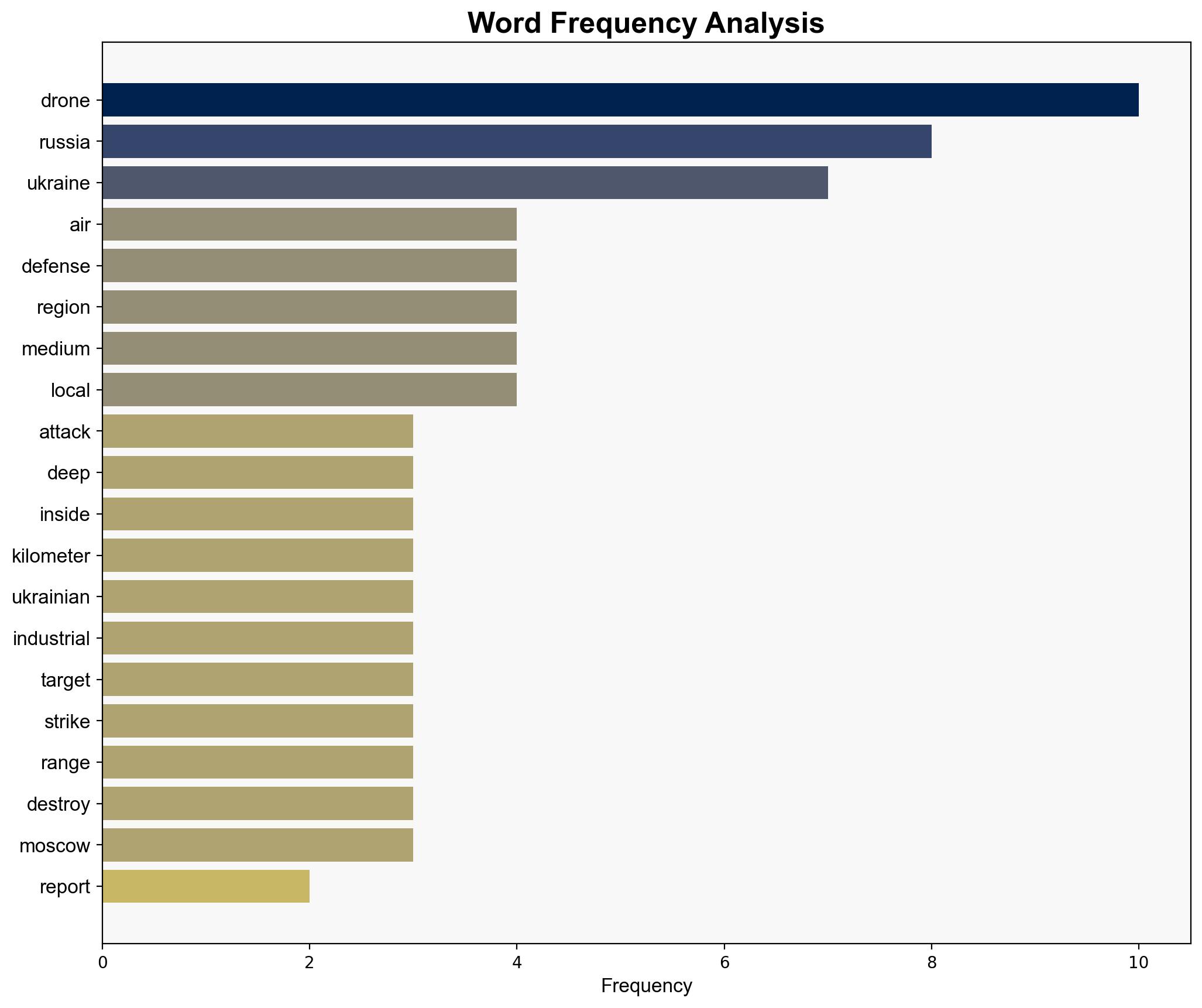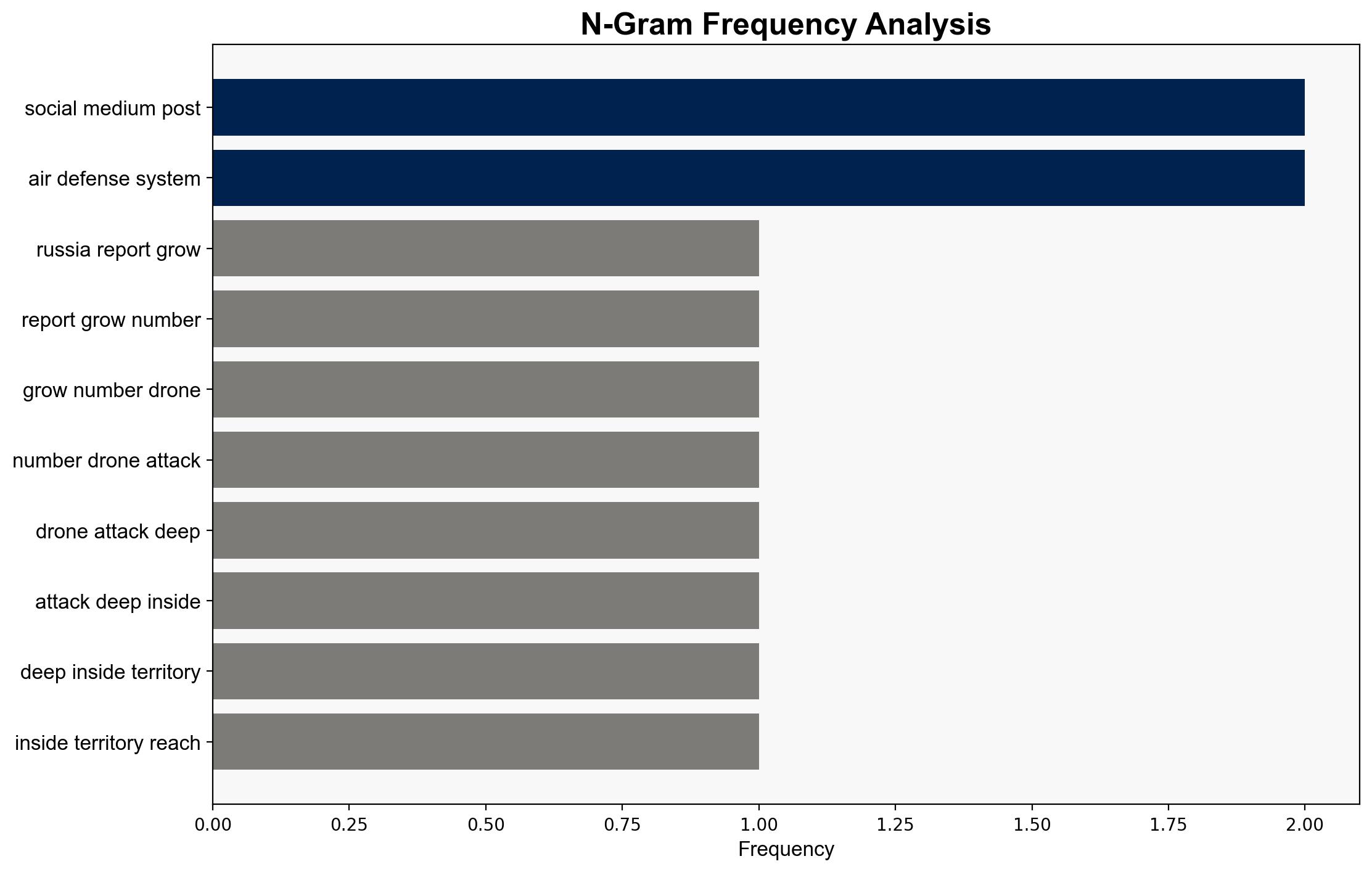Drone Attacks Are Now Seen 2000 Kilometers Inside of Russia – Insurance Journal
Published on: 2025-10-09
Intelligence Report: Drone Attacks Are Now Seen 2000 Kilometers Inside of Russia – Insurance Journal
1. BLUF (Bottom Line Up Front)
The most supported hypothesis is that Ukraine is conducting long-range drone operations deep inside Russian territory to test and expose vulnerabilities in Russia’s air defense systems. Confidence level: Moderate. Recommended action: Enhance intelligence-sharing and defensive measures with Ukraine to counter potential retaliatory measures by Russia.
2. Competing Hypotheses
1. **Hypothesis A**: Ukraine is responsible for the drone attacks deep inside Russia, aiming to disrupt strategic targets and test Russian air defenses.
2. **Hypothesis B**: The drone attacks are conducted by non-state actors or internal dissidents within Russia, possibly with indirect support from Ukraine, to destabilize the Russian government and military operations.
Using Analysis of Competing Hypotheses (ACH 2.0), Hypothesis A is better supported due to the strategic alignment of the attacks with Ukraine’s military objectives and previous statements by Ukrainian officials. Hypothesis B lacks direct evidence and relies on speculative connections.
3. Key Assumptions and Red Flags
– **Assumptions**: It is assumed that Ukraine possesses the technological capability to conduct such long-range drone operations. It is also assumed that there is no significant internal dissent within Russia capable of such coordinated attacks without external support.
– **Red Flags**: Lack of direct attribution by Russian authorities and Ukraine’s non-claiming of responsibility could indicate deception or a strategic decision to maintain plausible deniability.
– **Blind Spots**: The possibility of technological assistance from third-party nations to Ukraine or non-state actors is not fully explored.
4. Implications and Strategic Risks
The continuation of drone attacks deep inside Russia could lead to several strategic risks:
– **Escalation**: Potential for increased military retaliation by Russia against Ukraine, possibly extending to cyber or hybrid warfare.
– **Economic Impact**: Disruption of industrial and energy sectors within Russia, affecting global markets.
– **Geopolitical Tensions**: Increased strain on international relations, particularly between Russia, Ukraine, and Western allies.
– **Psychological Impact**: Erosion of public confidence in Russian security capabilities.
5. Recommendations and Outlook
- Enhance intelligence-sharing with Ukraine to better understand the operational capabilities and intentions behind the drone attacks.
- Strengthen cyber defenses and counter-drone technologies to mitigate potential retaliatory measures by Russia.
- Scenario-based projections:
- **Best Case**: Diplomatic resolutions lead to de-escalation and improved regional stability.
- **Worst Case**: Full-scale military confrontation between Russia and Ukraine, with broader international involvement.
- **Most Likely**: Continued sporadic drone attacks with limited escalation, maintaining a tense but controlled conflict environment.
6. Key Individuals and Entities
– Volodymyr Zelenskiy
– Vasyl Maliuk
– Douglas Barrie
– Denis Fedutinov
7. Thematic Tags
national security threats, cybersecurity, counter-terrorism, regional focus





